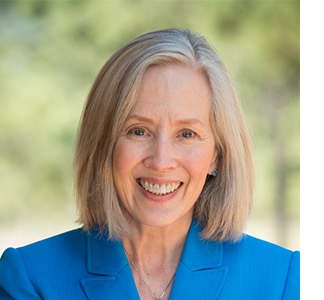Ministerial Exception
In this resource, Theresa Lynn Sidebotham, Esq. and Dr. Brent Lindquist have a discourse about ministerial exception and missions.
Part 1: What Is This “Ministerial Exception” I Keep Hearing About? (from Theresa)
Brent, you asked me to explain what the ministerial exception is and how it works. It’s a doctrine that grew out of the free exercise clause of the First Amendment. In the United States, a long line of cases has held that religious groups should be free to choose their own leaders, as a basic component of religious liberty. Usually, the courts will stay out of those decisions.
For example, in an early case against the Salvation Army, a female officer was terminated. She filed an Equal Employment Opportunity Commission sex discrimination case.1 The court decided that, while the sex discrimination provisions of Title VII generally would apply in a situation like this, they could not apply to a ministerial relationship: “The relationship between an organized church and its ministers is its lifeblood. The minister is the chief instrument by which the church seeks to fulfill its purpose.”2 This doctrine has recently been strongly affirmed by the U.S. Supreme Court, in a case involving a religious teacher, and it applies not only to churches, but to religious schools and other religious organizations.3
Who is a “minister” is defined quite broadly. Persons fit the ministerial exception if their primary functions serve the spiritual and pastoral mission of the organization, whether or not they are ordained. This doctrine does not refer only to someone who is ordained, or to someone who is a pastor. Teachers, music ministers, youth pastors, and others have been found to be ministers. The key is whether the person is in a role that fulfills a specific spiritual purpose. Evangelism, creating religious materials, teaching, service ministry such as medical missions, and others can and should all fit within the ministerial role.
As a general rule, most missionaries would fit the ministerial exception, and it would be the rare employee where the mission would say that the person does not further its religious purposes. Persons would not be included under this exception if their positions were purely custodial or administrative, with no spiritual function.4 The mission should consider what jobs would have no spiritual function!
Given how strong this doctrine is, some missions leaders just relax and figure that they don’t need to worry. Any of their employment decisions will be protected by the ministerial exception doctrine.
This approach has several problems. One is that often administrative agencies (like the Civil Rights Division) will not address constitutional issues. You may have to litigate through that level and get into federal court before you can raise the ministerial exception defense. Another is that you cannot be absolutely certain that the court will agree with you that the person is a minister. Finally, if a mission appears to be violating peoples’ rights, it will be tempting for the court to narrow the ministerial exemption. In a time when many religious liberties rights are being narrowed, you don’t want to tempt fate—and none of the rest of us want you to narrow the doctrine, either.
Most employment laws involve treating people kindly and reasonably. The better approach is to have several lines of defense. Make sure that your treatment of people meets or exceeds general statutory standards. Also define your job descriptions so that you can call on the ministerial exception where you are genuinely entitled to do that. Then, if you have to raise that defense, you will be in a more sympathetic position.
Part 2: How Do Organizations Identify Their Ministers? (from Brent)
Thanks for this clear introduction to the “Ministerial Exception” idea. I can see how this gives a church or religious institution freedom to exercise its beliefs free from undue government intrusion. I can also see how an organization could get lazy with its use, and lean on it too heavily or inappropriately.
In your last paragraph above you state “Most employment laws involve treating people kindly and reasonably.” Also, treatment of people needs to exceed general statutory standards. If we act this way, we’ll generally avoid discrimination, and not even need to invoke the ministerial exception.
I guess my struggle with the ministerial exception is that it is not broad enough in another way. As a psychologist who has assessed, trained and treated thousands of missionaries over the last almost 40 years, I have seen a lot of potential train wrecks where the information we discovered in the assessments may not have had much to do with the ministerial exception, but it allowed people to make informed decisions about placements. That is because my assessments provided useful information. I think of these these tests as related to the broader scriptural standards of caring for people, in that if you know someone is heading for a fall, you need to bring it to their attention.
So ministerial exception lets a religious organization define and choose its ministers. Assessing people for jobs means evaluating their characteristics and perhaps making decisions about whether they belong there or whether you avoid trouble by keeping them out. Are these two related? It seems to me that when the ministerial exception lets an organization choose its minister by spiritual characteristics, which could include some diagnostic criteria. We can measure traits that are essential to effective spiritual development, growth and thriving, which are relevant under the ministerial exception, but are also diagnostic. By this I mean psychological traits like good mental health, versus family history of depressions of all kinds, current depression or other significant mental health issues.
Maybe this is my head cold talking today, but it feels like my hands are tied pretty tightly as I help assessment personnel or mission leaders try to ascertain who might be the best fit for their organization and tasks. How do I analyze mental health criteria? Does selection by mental health violate civil rights statutes? How do I apply the ministerial exception?
You and I have discussed job descriptions a lot, and I guess this interaction of mental health and ministerial criteria goes right back to the need to create a really good position description.
So what am I asking? Here goes: What is the best process for identifying behavioral, interpersonal, and spiritual characteristics that will define what a religious organization wants in a minister so that it can legally claim ministerial exception?
Part 3: Defining Jobs (from Theresa)
So, Brent, what you are asking is that I give you a neat packaged formula to apply at the crossroads of mental health issues and constitutional law. So the lawyer and the psychologist stop at the intersection and shake hands! Could you possibly pick anything more complicated?
Looking down your road, the mental health perspective, the religious organizations don’t want to assign people to jobs that will destroy them because the stress is too high, medical services are not available, and so forth. How will you prevent this? You have candid discussions with people about the results of their assessments. And with their permission, you will share some of these results with their employers. You don’t want to discriminate because of mental health—but there are some situations where people with certain conditions simply cannot serve.
Looking down my road, religious organizations are allowed to define jobs—either with bona fide occupational qualifications, or by what is required of their ministers—or both. How should they do this? They should identify the stressors and problems first, then the characteristics a person will need to have, and the behaviors they will need to perform well. Will they need to learn an unwritten language, cope with the trauma of civil war, deal with extremes of heat or cold, or cope with highly chaotic cultural situations? Then they should say so, because then you can assess whether certain people can handle those things. Are certain spiritual qualities required? If so, you can assess for that. Are certain skills required? You can also look for those in their background and experience.
A religious organization can define a job however it needs to. But unless and until it does, you and I cannot be of much help. How can you assess whether a person’s mental health and other personality traits are a good fit if you have no idea what the challenges are? How can I defend a ministry’s spiritual and other requirements for its ministers if even the ministry can’t define what those are? A ministry needs to figure out what it wants and why it wants it. Then you can help figure out the assessments and I can help figure out a legally defensible approach.
_________________________________________
"The Rock and the Hard Place" blog is a discourse between Theresa Lynn Sidebotham, Esq. and Dr. Brent Lindquist on the topics of law, human resources, psychology, member care, and the theology of missions. To learn more about this blog and what it's all about, click here.

Theresa Lynn Sidebotham, Esq.

Dr. Brent Lindquist
1 McClure v. Salvation Army, 460 F.2d 553 (5th Cir. 1972).
2 Id. at 558-59.
3 Hosanna-Tabor Evangelical Lutheran Church v. EEOC, 132 S.Ct. 694 (2012).
4 Patton, 212 S.W. 3d at 549 (finding a non-ordained Director of Youth Ministries was a ministerial employee).
Disclaimer: not official legal or psychological advice or opinion
Because of the generality of the information on this site, it may not apply to a given place, time, or set of facts. It is not intended to be legal advice, and should not be acted upon without specific legal advice based on particular situations
